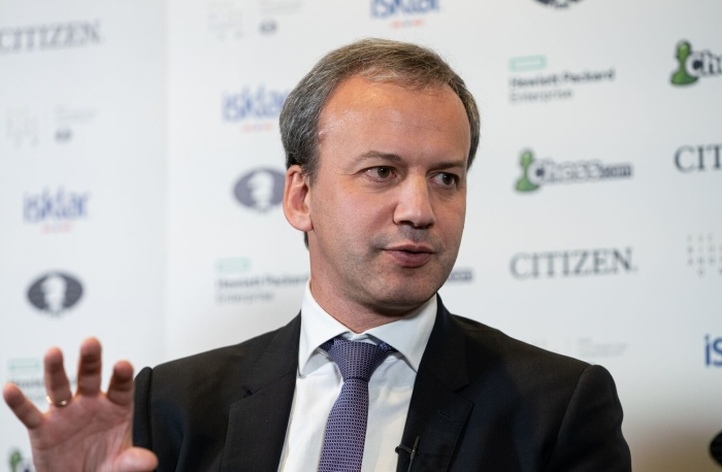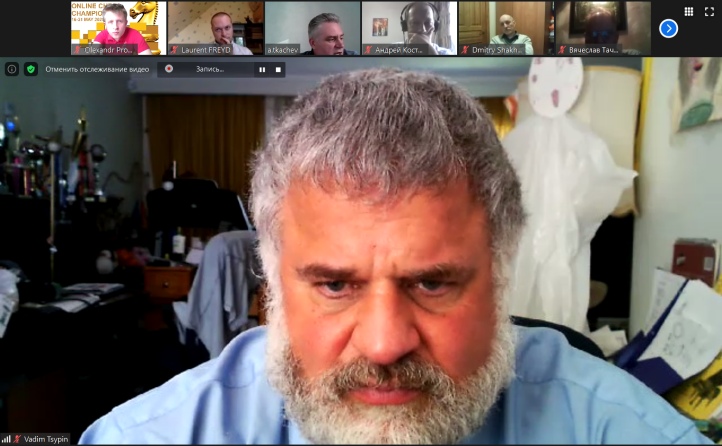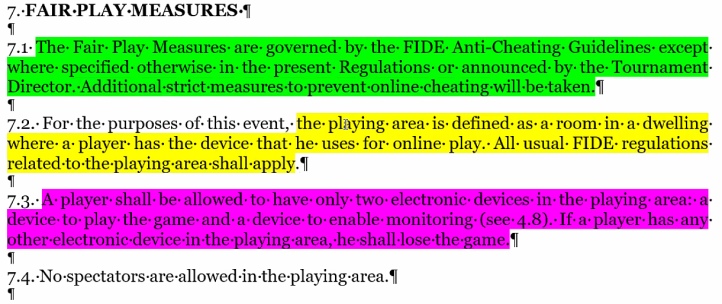An online training seminar (Webinar) for FIDE Arbiters, International Arbiters, and online tournament organizers was held by the Chess Federation of Russia on June 05, 2020. Titled “Specifics of chess arbiter’s work in online tournaments”, this Webinar in the Russian language became the largest chess training event organized during the COVID-19 pandemic. The Webinar organizers registered 203 participants from nineteen (19) national federations: Russia, Azerbaijan, Belarus, Bosnia and Herzegovina, Bulgaria, Costa Rica, Estonia, France, Georgia, Kazakhstan, Kyrgyzstan, Lithuania, Moldova, Mongolia, Serbia, Slovakia, Tajikistan, Ukraine, and Uzbekistan.

The event started with personal greetings by FIDE President Arkady Dvorkovich. Addressing Webinar attendees, Mr. Dvorkovich expressed confidence that this important event would serve to share the best practices and processes being established in the online chess, and thanked the Chess Federation of Russia for taking this important initiative and bringing together colleagues from different parts of the world. “I think it is a great effort by the organizing team and I hope that even in these difficult times, all arbiters, organizers, and players, everyone who is online now, can enjoy chess and show their best qualities.”
Indeed, the unique innovative approach by the Chess Federation of Russia offered the Webinar attendees (including the leading International Arbiters of the partner countries), both an intensive training on the most difficult issues of arbitering in online events and a chance to learn about new theoretical and practical developments in that realm as well as new initiatives and projects by FIDE and its member federations.
The webinar Leader IA/IO/FL Alexander Tkachev (Russia), the CFR Technical Director, summarized the valuable lessons that the CFR has learned from switching from over-the-board to online chess on short notice. The lecturer proceeded with a refresher on the Anti-cheating Regulations and discussed in detail how strict adherence to Fair Play Measures becomes a crucial issue for online events.

A guest Lecturer IA/IO Vadim Tsypin (Canada) spoke about general requirements for Regulations of online tournaments. He explained how to identify three areas: the one where FIDE General Regulations for Competitions shall continue to apply directly, another one where topical corrections or modifications are needed, and the final one that shall contain completely new elements warranted by online play. Using as an example the Regulations for the First FIDE Online Cup for Players with Disabilities, the lecturer parsed relevant articles, identified which area they belonged to, and encouraged listeners to use this approach when they create Regulations of their events.
Another guest Lecturer, IA/IO/FT Olexandr Prohorov (Ukraine) explained what new responsibilities fall upon a chess arbiter in online tournaments and how to be ready for them. He shared his experiences serving in the Sunway Sitges Online Open and the European Online Chess Championships, gave specific examples of contentious issues he had to resolve, and presented screen captures that illustrated both serious and hilarious moments related to player supervision.

The Webinar concluded with a special Q&A section. Answering the participants’ inquiries, Mr. Tkachev revealed bold new initiatives by the CFR, in particular, the development of a CFR online chess rating system that would allow earning titles through online play.
The international Webinar audience asked a lot of questions regarding FIDE plans in the online competitions and changes in the FIDE calendar for 2020 and 2021. Mr. Tsypin answered those questions in detail and also brought to everyone’s attention a recent resolution by the United Nations General Assembly. World Chess Day, celebrated worldwide on July 20, is now officially recognized by the UN. Next month, the international chess community shall mark this date widely.
Through online chat and other comment channels, participants expressed heartfelt thanks to the organizers and lecturers. Most of the feedback asked to meet again and to make such training regular.
Information and photos by the Chess Federation of Russia







